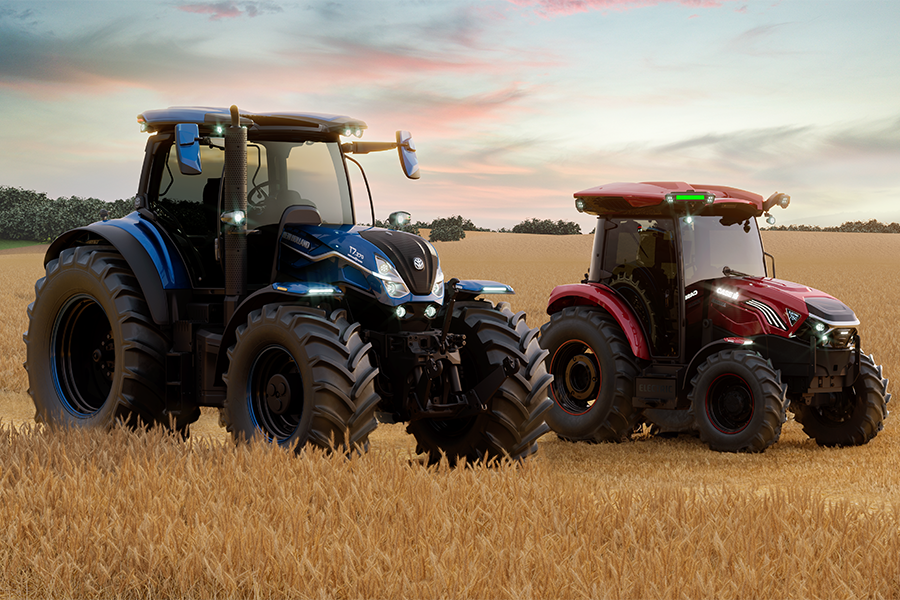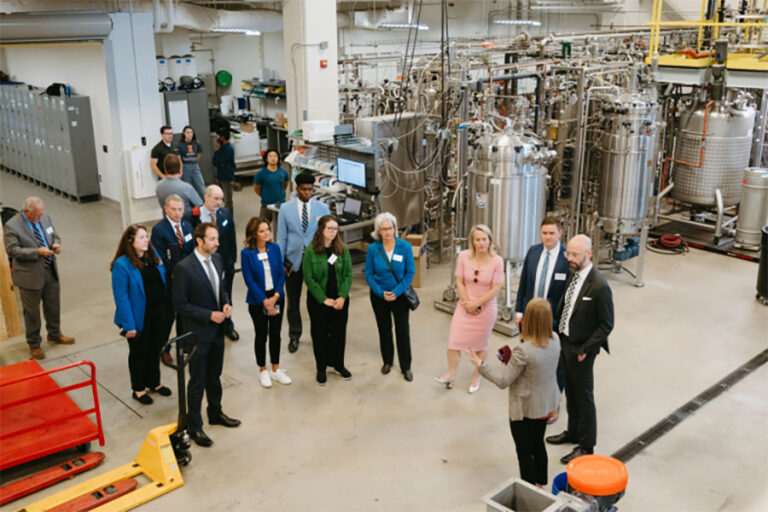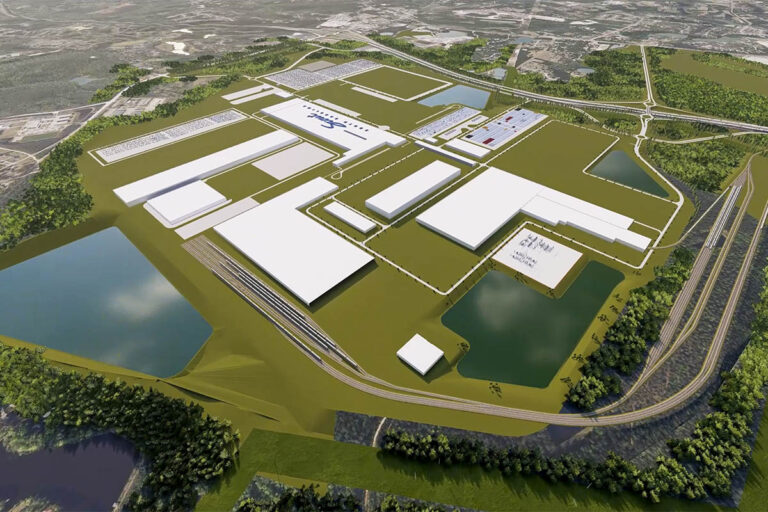
A year after the UN announced that the global population had reached more than 8 billion, one of the world’s largest manufacturers of agricultural equipment continues to develop smarter ways for farmers to feed the world as efficiently and sustainably as possible.
“Our goal is to empower farmers with new technologies that enhance their productivity, yields, and profitability,” says Scott W. Wine, CEO of CNH, a global company specializing in equipment and services for agriculture and construction. “At a time of rapid population growth, a dwindling labor force, and shrinking arable land, precision farming and autonomous technologies are the only way forward.”
The owner of legendary agricultural machinery brands dating back to the 19th century, including Case IH and New Holland, CNH is reinventing itself to meet today’s challenges. It has ramped up its R&D spending and launched cutting-edge vehicles such as highly automated combine harvesters and crop sprayers, as well as the world’s first tractors powered by compressed natural gas (CNG) and liquefied natural gas (LNG).
“We take pride in advancing the noble work of farmers and contributing positively to the world.”
Scott W. Wine, CEO, CNH Industrial
Alongside an annual R&D expenditure of approximately $1 billion, a series of acquisitions has positioned the company as a frontrunner in agricultural innovation. Following the purchases of precision agriculture pioneers Raven and Augmenta and satellite positioning leader Hemisphere GNSS, CNH is using AI, autonomy, automation and other disruptive technologies to transform age-old farming processes.
This year, harnessing technologies developed by Raven, the company released a driverless grain cart that runs alongside a tractor to collect grain as it is harvested. Using just a tablet to control operations, farmers can cut their labor costs, reduce grain spillage, and improve their efficiency and productivity.
Meanwhile, thanks to high-resolution cameras and AI from Augmenta, farmers can apply fertilizers precisely, reducing input costs and maximizing yields. They can also use this technology to spray pesticides and fungicides only where they are most needed, improving their effectiveness and protecting the environment from excessive chemical use.

“We are continually enhancing our technology,” Wine says. “Our innovations are helping farmers navigate fields more efficiently, resulting in better grain quality and higher yields.”
CNH’s construction equipment business is also thriving, thanks to high-tech products such as electrified mini-excavators, which are ideal for city building projects.
Committed to creating real value for customers with sustainable innovations, the company is continuing to develop tractors powered by LNG, CNG, and electric batteries. Next year it will begin commercial production of the world’s first all-electric utility tractors.
Fully battery-powered, the medium-sized New Holland T4 Electric Power and Case IH Farmall Electric tractors include autonomous driving features that enable operators to control the vehicle from outside the cab. For example, in the Follow Me mode, a driver can leave the cab to open a gate while the tractor follows behind.
“Our focus on sustainability is grounded in the practical needs of farmers,” Wine says. “It reflects one of our five cultural beliefs: Customer First.”
The company’s drive to streamline its business is leading it to delist its shares in Italy and focus on its stock market listing in New York.
“Delisting in Milan will make it easier for investors to compare us with our competitors and understand our story,” Wine says. “Simplification is a key part of our strategy for creating value, for our shareholders as well as for our customers.”![]()
As published in Fortune magazine









